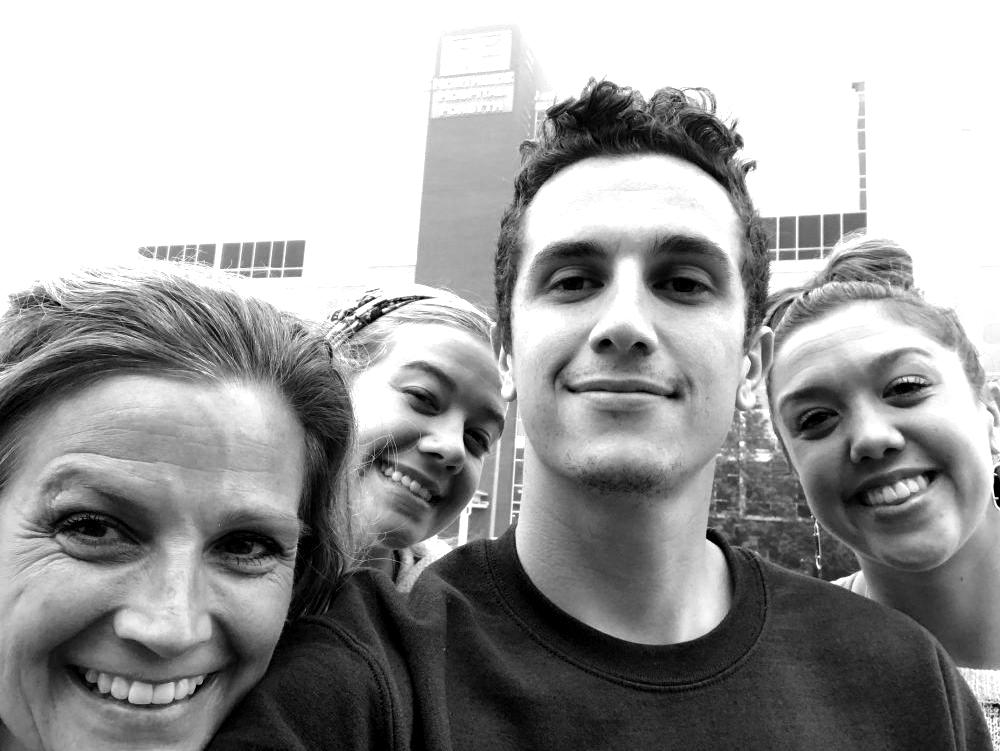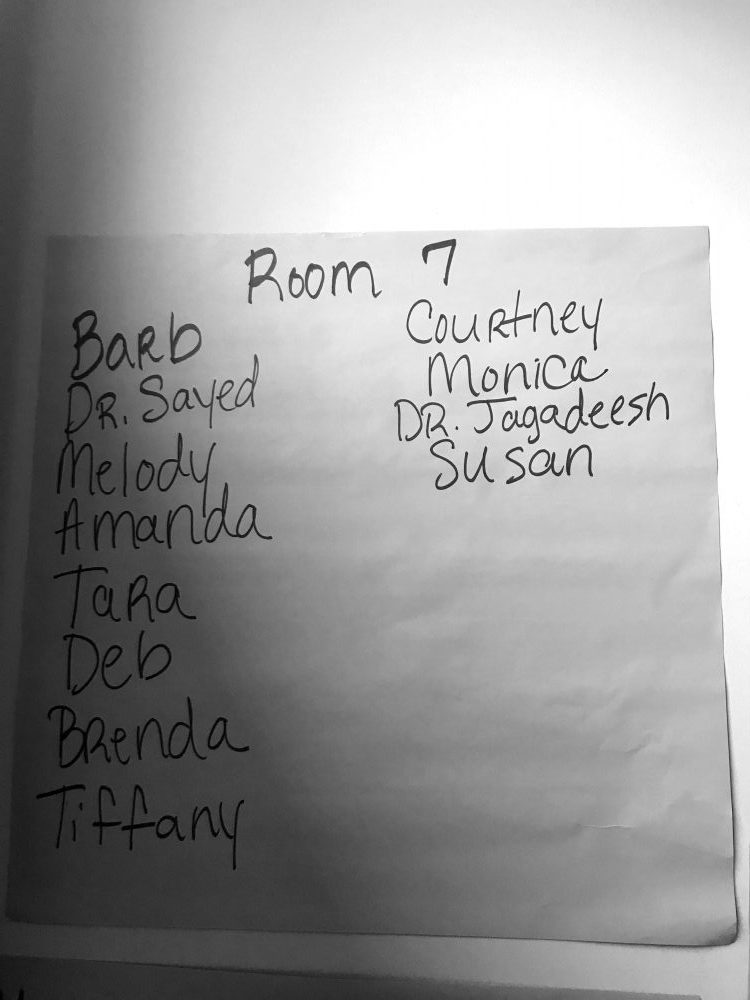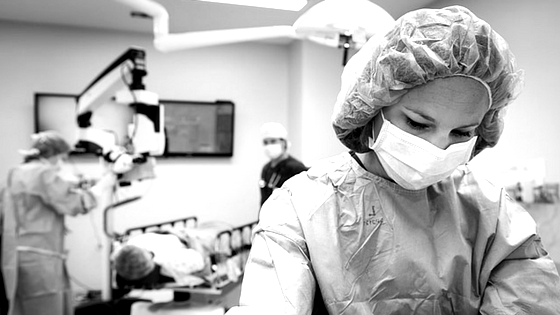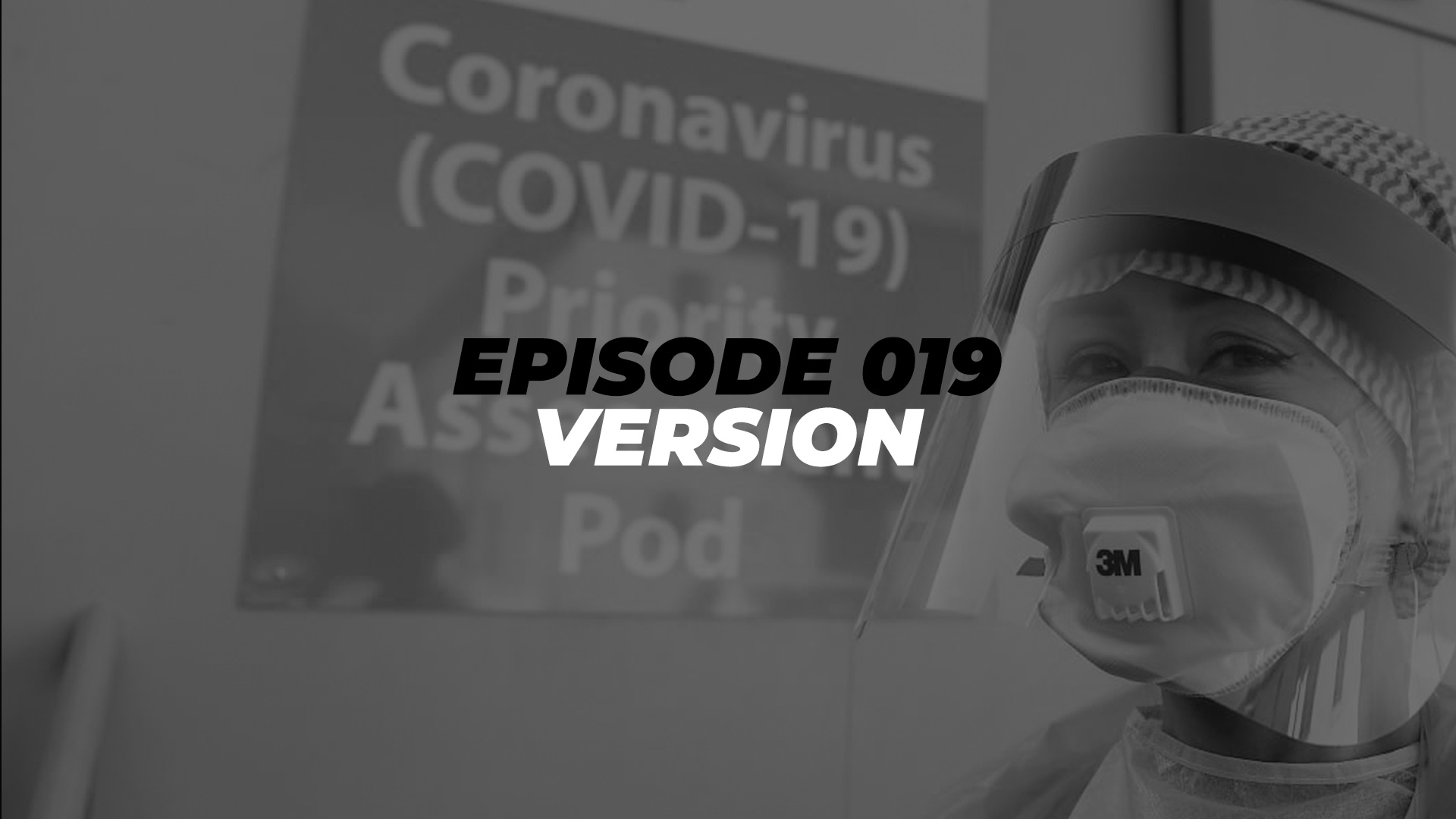Last week, Stuart Hall, the leader and founder of INFLUNSR, was hospitalized due to complications related to COVID-19. His condition has improved but still remains in critical condition. Please continue to pray for healing for Stuart and comfort for the Hall family.
This month’s Version is written by Stuart’s son, Grant.

It has been a long, hard, emotional week for my family, but my dad, Stuart Hall, has made steady, incremental progress every day.
Monica, my dad’s nurse on Easter, surprised us with a FaceTime call from an iPad that the hospital has commissioned to help breach the cruel gap between ICU patients and their families that COVID-19 conditions necessitate. He is still sedated and unconscious, but my mom, sisters, and I were so grateful to see his face and tell him how much we love him. He is doing better than anyone anticipated after our hellish Tuesday morning last week, and Monica told us they were hoping to extubate from the ventilator this past Tuesday. They delayed until Wednesday, and upon attempting the extubation he became agitated, so they reinserted the ventilator, stabilized his oxygen levels, and are hoping to try again this Saturday.

My mom, sisters, and I have spent the past ten quarantined days occupying ourselves as best as possible – calling the ICU nurse assigned to my dad anywhere from two to seven times during their shift, relaying the updates to our friends and family, and responding to the gracious barrage of messages of love and encouragement from people far and wide. I’m sure the beautiful fuss people have made over Stu will have his eyes rolling just as soon as he opens them, for he lives to make much of others. But witnessing the scope and depth of his influence has been incredibly humbling and comforting for our family, especially in such an isolated time.
We started the day on Easter by streaming a church service onto our living room television and the story of hope and renewal that I’ve heard a fair share more than twenty-four times fell on the ears of our family with a different level of urgency this year. The pastor emphasized that before the resurrection, there was no bible, no Christian faith, no Christians. The first people to find peace in this story were the women who had traveled to the tomb to anoint Jesus’s body. Upon finding it empty, they had their faith restored: thereby becoming the first Christians. I knew the story by heart, but the implications of the first Christians being women had never clicked for me, and it was something I proceeded to reflect on as I went about the rest of my day.

On the wall beside our television we have taped a list of the different doctors and nurses that have treated my dad up to this point. On Easter I noticed that 11 of the 12 names were women’s. These are the medical professionals literally facilitating my dad’s existence at this point – constantly supervising his vitals, raising and lowering his medicine and support levels, taping pictures of our family to the wall beside his bed and relaying our names and encouragement to his sedated ear, fielding our incessant calls, answering our scared, ignorant questions with patient and comforting competence, having the empathy to put on a hazmat suit just to FaceTime us so we can see his unconscious face for thirty seconds, and nursing him back to life before our eyes.

Women make up 78% of the healthcare field overall despite consistently making less than their male counterparts across the board. This means that, consistent with the list taped to our wall, the vast majority of the healthcare workers on the frontlines of the response to COVID-19 who are risking their safety daily to save the lives of those critically ill, are women.
It was strange to become the man of the family quite literally overnight from Monday to Tuesday. While I am very much looking forward to ceding that mantle back to my father upon his Easter, I am blessed with a mom and two sisters who have been admirably brave through hell. They’ve been courageous enough to feel our situation from every possible angle, to laugh and cry in the same sentence at the absurd and by no means unique pain of it all, and to keep finding a way to move forward. They have been as strong and supportive towards me as I could ever presume to be towards them.

I wanted to take some time to process how grateful I am for women: the ones with which I watched what feels like our seventeenth Hallmark movie of quarantine last night, the ones who have brought us more food and groceries than we know what to do with, the ones who have called, messaged, and comforted me with love and intention, the ones bringing my dad back to life, and the ones putting their lives at risk in hospitals across the country and globe.
I’m not sure that we deserve you, but there’s never been a more appropriate time to admit that we can’t live without you.
Healthcare workers are the true heroes of our current moment and we would be remiss to not acknowledge their sacrifice. Putting your wellbeing at risk to care for the most vulnerable is a brave thing to do during the best of times. But in the midst of a global pandemic, where in our country alone we are losing thousands daily to a virus we don’t even completely understand yet, an entirely new kind of excellence is required of our doctors, nurses, and other healthcare workers.

INFLUNSR defines excellence as choosing to create a better future by going the extra mile. The future of countless lives depends on our healthcare workers’ capacity to meet this standard, to rise up in the face of unprecedented adversity. This week, as an application, we would like to share six ways we can support them.
- Make sure they get some free food – People who may be friends or family with healthcare workers could have a free meal delivered to them by using UberEats, Postmates, or another delivery service.
- Continue to donate blood – The American Red Cross announced it’s experiencing a “severe blood shortage” because many blood donation drives have been cancelled or postponed due to the coronavirus. You can still take time out to donate blood while maintaining self-quarantine.
- Donate to charities that support hospitals – You can donate to your local hospital or to organizations like the Center for Disaster Philanthropy, which has created a COVID-19 Response Fund support those affected by coronavirus as well as first responders.
If you are looking to help hospitals with supplies, Direct Relief is helping to provide essential medical items and protective equipment to health care workers responding to the coronavirus.
- Follow the advice of healthcare workers – Simply following the advice of healthcare experts can have the biggest impact of all. Stay at home, wash your hands, and social distance. Get your information from credible sources like the Centers for Disease Control and Prevention and the World Health Organization.
- A simple thanks can go a long way – We have seen heartening examples of gratitude on social media in various American cities of people showering healthcare workers with applause in honor of their work. Whether coordinating this sort of event or taking the time to write a note to friends or loved ones on the frontlines, expressing our gratefulness for their sacrifice is the least we can do.
- Don’t buy up unnecessary supplies – Many hospitals are already experiencing shortages of vital items, as panic buying by the public has caused them to scramble to find crucial supplies.

Applications are excerpts from Today article: https://www.today.com/health/how-help-during-coronavirus-ways-support-health-care-workers-t176257#anchor-strong3Donatetocharitiesthatsupporthospitalsstrong

